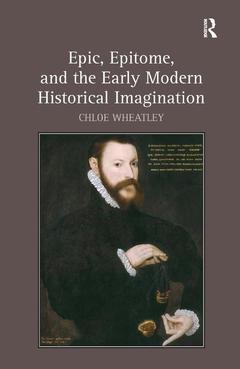Description
Epic, Epitome, and the Early Modern Historical Imagination
Author: Wheatley Chloe
Language: English
Keywords
bartas; john; stow; dynastic; chronicle; sixteenth; century; journal; bart; van; Du Bartas; Lot’s Wife; Degory Wheare; Edward III; Rich Good; William Lisle; Guillaume De Salluste; Sieur Du Bartas; Dynastic Chronicle; Cowley’s Davideis; National Biography; Faerie Queene; Ludovico Ariosto’s Orlando Furioso; Sir Walter Raleigh’s History; Bart Van Es; Briton Moniments; Thomas Blundeville; Divine Weeks; Cowley’s Poem; Chronicle Summaries; Early English Books Online; Sylvester’s Translation; Historical Interpolations; Epitome Culture; Guillaume De Saluste
Approximative price 177.01 €
In Print (Delivery period: 14 days).
Add to cartPublication date: 06-2011
Support: Print on demand
Approximative price 64.97 €
In Print (Delivery period: 14 days).
Add to cartPublication date: 11-2016
· 15.6x23.4 cm · Paperback
Description
/li>Contents
/li>Biography
/li>
These books may interest you

Stories from Spenser 31.58 €

Spenser's International Style 26.37 €

Spenser's International Style 107.81 €

